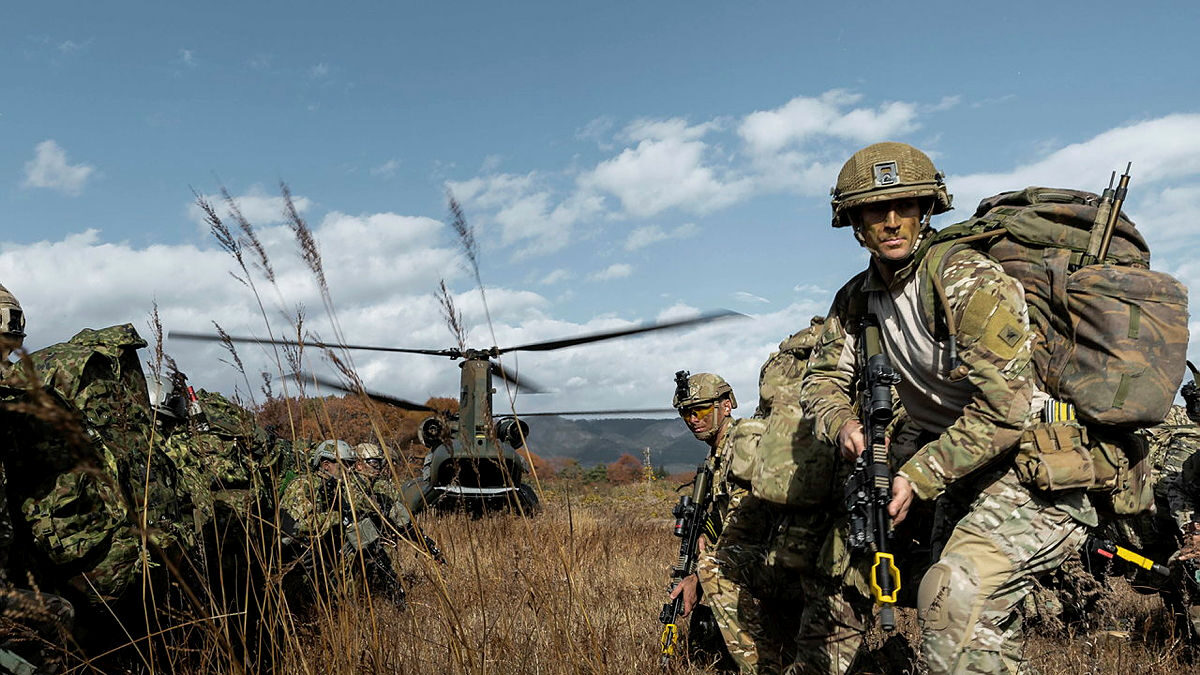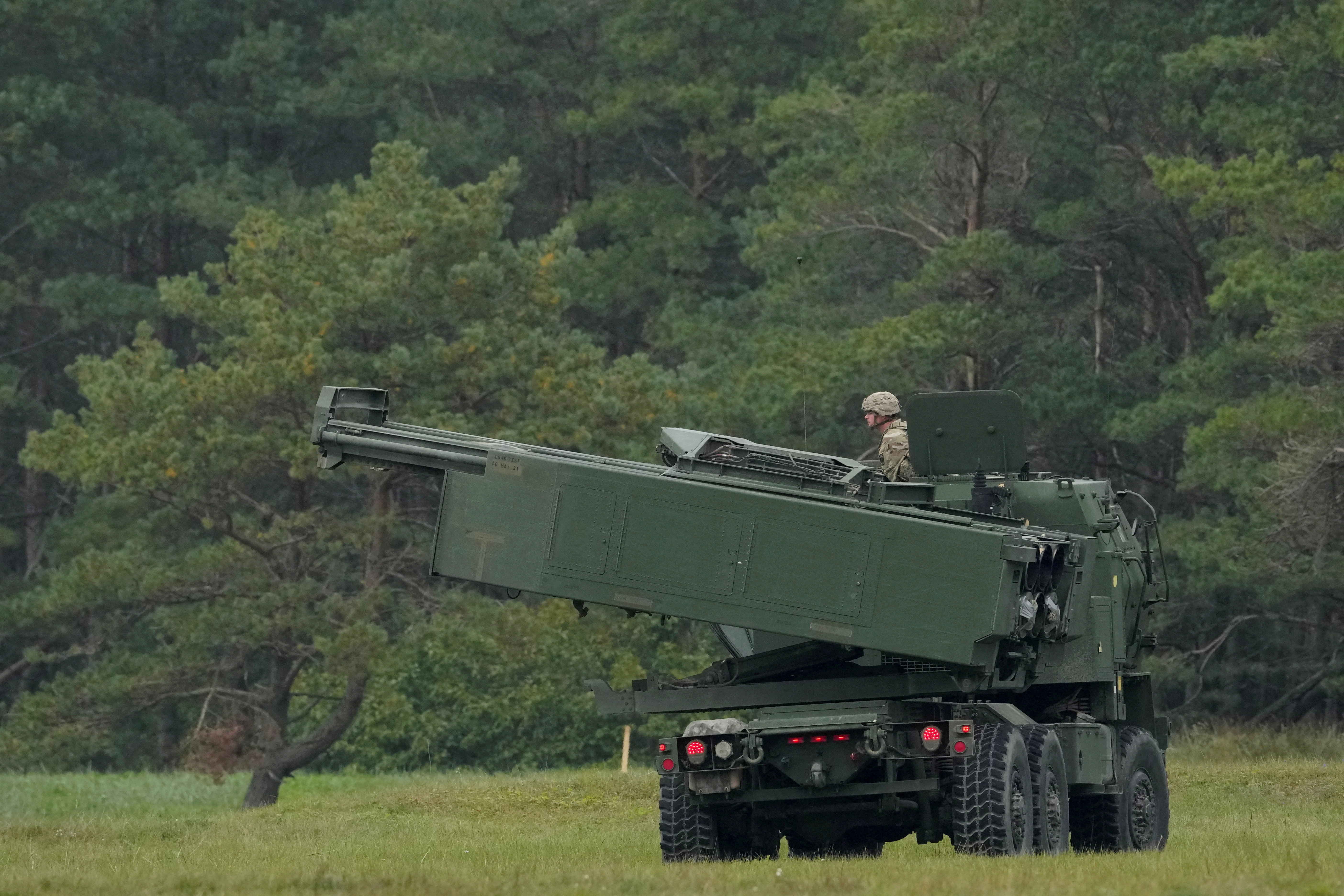Military Click Meaning - Supported by his audience. When you purchase through our links, we may earn an affiliate commission. learn more
Among countless military jargon and terms, you've probably heard the term clicker, especially if you're a military video game, movie, show, or geek. Sometimes this term is also referred to as a click.
Military Click Meaning

If you enlist, you will come across this term. So it's good to know in advance what military click distance means. Read this article and prepare in advance!
Home Page Of Incirlik Air Base
In a military context, a click is a measure of distance. So how far are clicks in military terms? The short answer to this is: A click is 1 km. However, like many other military terms, there is more to it. Read on for more details.
As a distance measure, click distance or click distance is used by ground infantry, whether friendly or enemy. The military refers to this as the distance traveled and target distance from any point of interest. For example, a chat click is when we're 15 clicks away or an enemy unit is 5 clicks north.
One click is 1 kilometer, so exactly 1000 meters in metric or 0.62 miles in English. For example, if something is one click away, it is effectively 1 kilometer or 0.62 miles away.
Most Americans do not use the metric system, but the US military uses the metric system because of many joint operations and communications with other countries that do not use the metric system.
Bts Member Jin Begins Military Duty At Frontline South Korean Boot Camp
It is said that there are only three countries in the world that use imperialism: the United States, Myanmar, and Liberia. Therefore, US troops deployed on foreign soil must adapt to the more popular metric system used by other countries.
Thus, clicks appeared in kilometers, a universally accepted measure of distance in the military. Klick is used in the term kilometer itself because it is concise and easy to pronounce.
Soldiers all over the world can use and recognize this measurement. This sharing prevents miscommunication and miscalculation when conducting military missions and/or combat operations.

Clicks are commonly incorporated into military communications tools such as radios. Clicks also line up nicely using 1km x 1km grid squares on military maps. For service members, a click is more accurate.
U.s. Marine Corps Forces Reserve
A click also makes it easy to convert to meters, the standard unit for most foreign maps, especially landscapes and/or terrains with measured elevation lines.
The first is that the word was adopted during World War I, which lasted from July 28, 1914 to November 11, 1918. However, the United States only joined in 1917, providing medical and tactical supplies. During this time, language barriers were addressed with a common measurement known as the klick, shortened from the term kilometer.
The theory was that the system in place would tell the soldiers to advance the rifle's gas setting every 100 metres. Press 10 times and the gas regulator will return to its original position and you will hear a click. Hence the term kilometer click was born.
In military terms, there are several different theories about the origin of click. See here.
Sensor Open Systems Architecture (sosa™) Consortium
But regardless of its history, click has cemented its place in today's military glossary. These devices dominate in wireless communications because of the need for fast and good information transmission.
Thanks to its short form and uncomplicated pronunciation, as mentioned earlier, three syllables saved, Click is ideal for conveying your message.
This brings us to the end of our article on how far a click is in military terms. Now you need to know what this term means and its transformations, origin theory, and modern usage.

If you're soon to be a member of the service, you can be sure you won't be caught off guard when the term "click" is thrown at you during missions or training. To recap, clicks are the standard metric for the military. The word "click" is meant to be used broadly. A click is 1 km.
Nova Scotia Archives
Hope this helps. If you have any additional questions or thoughts, please feel free to comment. We are always happy to hear stories and chat with our readers!
I'm Everett Bledsoe and I'm a Content Producer for The Soldiers Project. The purpose of this project is to provide honest reviews of equipment that has been used and tested over time. Of course, you can't go wrong with a bundle of information and guides from reliable sources and years of experience.
For defense purposes, the US Army is equipped with the most advanced and highest quality equipment. Start here to keep your gear up to date. You can find a list of selected gear ranges that are military complaints. And we check all the accessories you need to support long-term maintenance. Check us out! USA. Military Terminology: The (almost) definitive guide: What is a Parallels fobbit? How is the stream? And then there's the ice cream cone that licks itself. Twelve years of war in Afghanistan and Iraq have created a whole new military vocabulary.
US soldiers look at an overturned crane trying to move a containerized unit (CHU) to a small combat outpost (COP) in southern Afghanistan. Twelve years of war in Iraq and Afghanistan have created a whole new military vocabulary. David Gilkey/ hide caption
The Army Reserve
US soldiers look at an overturned crane trying to move a containerized unit (CHU) to a small combat outpost (COP) in southern Afghanistan. Twelve years of war in Iraq and Afghanistan have created a whole new military vocabulary.
American soldiers find it painful to listen to the dialogue and watch the movie when the dialogue is full of outdated slang words like "chopper" and "GI."
Slang words change with the times, and the military is no different. Soldiers serving in the wars in Iraq and Afghanistan developed an extensive new military vocabulary, taking cues from both popular culture and the military-industrial complex bilingual.

The withdrawal of U.S. forces from Afghanistan, which is currently underway but still awaiting the outcome of a proposed bilateral security agreement, is often referred to by soldiers as "retrograde," an old military euphemism for retreat. Of course, the US Army never "retreats". Rather, it performs "tactical retrograde".
Bad News Politically, Shrewd Move Militarily? What Russia's Kherson Retreat Means And What It Doesn't
This list is by no means exhaustive (some phrases are too structured to post). And some terms were used before the wars in Afghanistan and Iraq. However, these terms are important to understand when speaking a soldier's current language and speaking to others.
The Big Voice: At a military base, loudspeakers broadcast urgent messages. If your radar system detects incoming rocket or mortar fire, Big Voice will automatically sound a siren and tell you to take cover. The Big Voice also warns of explosions that are usually planned to destroy captured weapons.
A US helicopter takes off from southern Afghanistan. They may still be called "helicopters" in the movies, but militaries around the world call them "birds." David Gilkey/ hide caption
A US helicopter takes off from southern Afghanistan. They may still be called "helicopters" in the movies, but militaries around the world call them "birds."
Veterans Day Facts
Bird: Helicopter. "Chopper" is rarely used except in movies where it is always used. A helicopter is a type of motorcycle, not an aircraft.
) container housing unit. These small, temperature-controlled trailers typically sleep between two and eight soldiers and are the main housing unit for larger bases. A CHU farm is a collection of multiple CHUs. A wet CHU is a CHU with its own bathroom, usually reserved for generals and other high-ranking individuals. The CHU has no armor and is highly vulnerable to missile attacks.
Police: Battle outpost. Small bases, typically holding between 40 and 150 soldiers, often located in particularly hostile areas. Life in the COP is often rigorous and demanding, with each soldier responsible for both guard and patrol duties.

) dining facility also known as Chow Hall. Where soldiers eat. Larger meals are served by contract workers from Bangladesh or India. Such employees are referred to as third-country nationals or third-country nationals.
Dad Definition Men's T Shirt
Dustoff: Medical evacuation by helicopter. For example, "dustoff inbound" means a rescue helicopter is en route.
Embedding: A reporter hosted by a military command to directly observe an operation. Security, food, shelter and transportation are provided by the military for integration.
FOB: Forward base of operations. It's bigger than COP and less than super base. FOBs are rigorous and can be dangerous, but generally hot and varied meals, hot water for showers and laundry, and recreational facilities are provided.
Geardo: (Weird rhyme) A soldier who spends huge amounts of personal money to buy cool military gear like weapon lights, GPS watches, custom backpacks, and more. it is usually
A Closer Look At China's Missile Silo Construction
One click military, click n play military toys, military jargon click, click in military terms, military measurement click, military term click, click definition military, military click distance, click in military distance, military slang click, 1 click military, click military
0 Comments